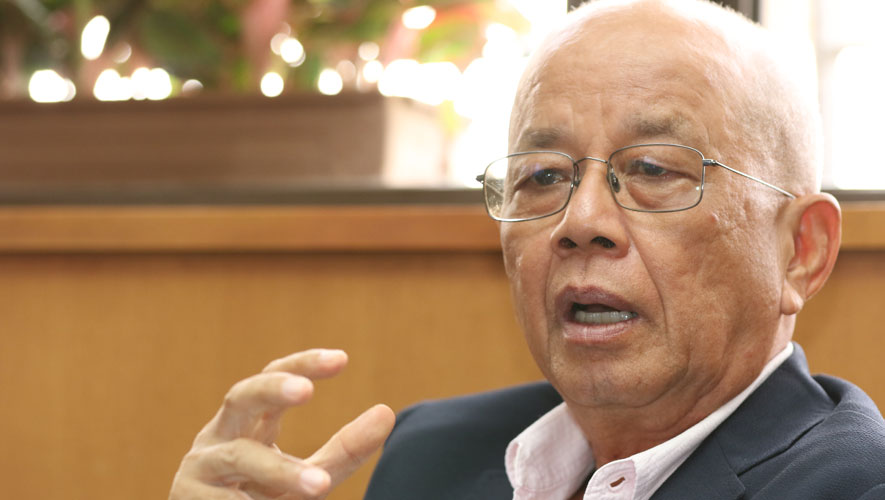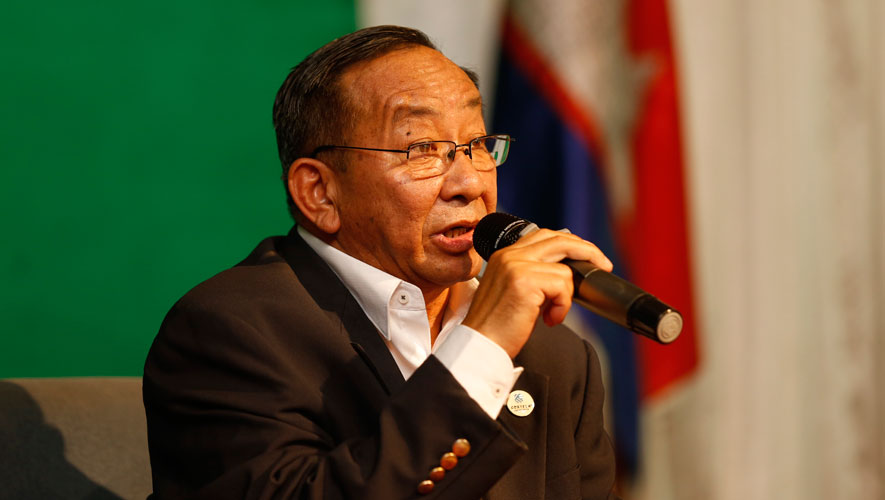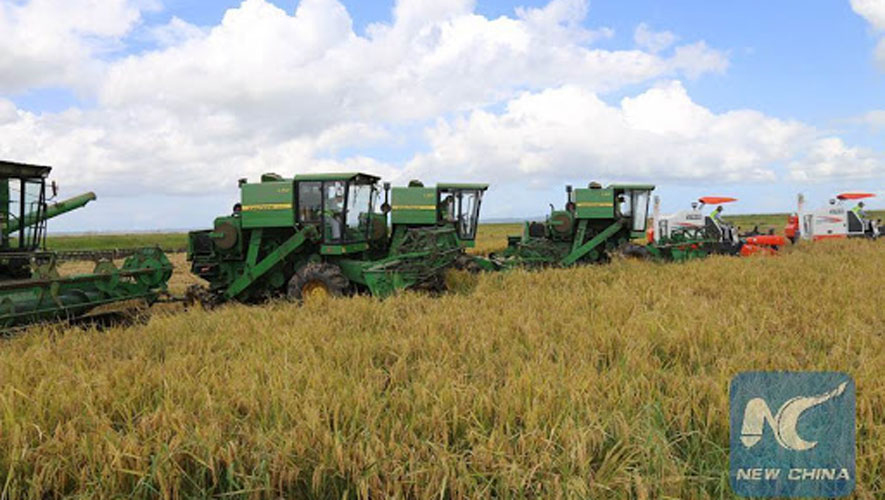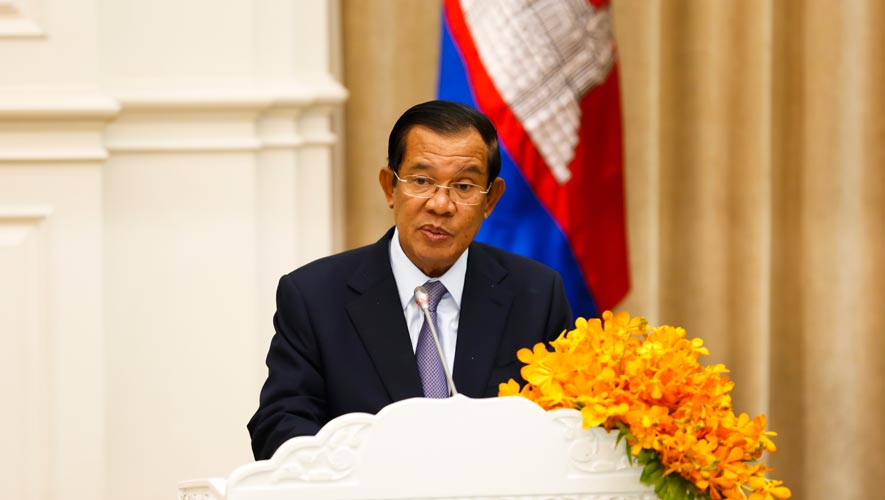A few weeks ago, the Cambodian prime minister called on local and international investors to inject more investment into the agro-processing industry in the Kingdom because this sector is less attractive to investors compared with others.
For the latest Cambodian Business news, visit Khmer Times Business
“Now, we are attracting investors to the processing industry in Cambodia. We want foreign friends to invest in the agro-processing industry in Cambodia… We have many potential agriculture products,” Mr Hun Sen said.
“We want the investment in the technological side of the industry. Although we have many labour-intensive industries such as garments, we cannot stand still, so we have to attract high technology and high added-value industry to the Kingdom,” he added.
In addition to that, during the celebrations for the Vietnamese New Year 2020 with Vietnamese communities and Vietnamese businesspeople in Cambodia this January, Mr Hun Sen once again called for more investment in the agro-processing sector in Cambodia from Vietnamese investors and businesspeople because of its lack in Cambodia.
He said Cambodia exported mostly raw materials to foreign countries, especially to Vietnam. Therefore, if there is more investment in processing plants, it would help to create more jobs for people and provide added-value.

Cambodia’s agro-processing industry sector is still underdeveloped (there are many opportunities for investment from research and development to transportation and marketing). In 2015, the Ministry of Industry and Handicraft recorded 41,674 registered small and medium-sized enterprises (SMEs) are carrying out 77.6 percent of the agro-processing (in the food, beverage and tobacco industries). At the same time, the industry is dominated by micro, small and medium enterprises (MSMEs), which hold an 80 percent market share.
Keo Mom, chairwoman of LyLy Kameda, a Cambodian-Japanese firm and a leading snack manufacturer, says that to encourage and attract investors on the food processing, government should address and solve water supply, electricity, labour and other inputs.
She adds every investor is asking these four criteria before they decided to make any investment in the food processing in Cambodia.
“The electricity is very crucial as they need a reliable and stable electricity to run the production chain. If there is no reliable and stable electricity, it will be difficult for the manufacturer to put any investment into the processing sector,” she adds.
Saravuth Tuot, Cambodia Area Sales Manager of Corteva Agriscience shares a similar view to Keo. He says that relating to the agro-processing in Cambodia, the electricity cost is high in Cambodia, and the cost of operations is also high for the investment compared with Vietnam and Thailand.
He adds that investors are still thinking and comparing the cost of production for setting up a factory in Cambodia or shipping raw materials from Cambodia to process in Thailand or Vietnam.
“I met some people and investors. They showed some interest to invest in Cambodia, but the law enforcement in Cambodia should be taken seriously, the electricity cost and cost of operation should be competitive,” he adds, saying that with the cost of production in the agro-processing being high in Cambodia, it cannot compete with the outside market.
“I think the government is making demands on the agro-processing sector. However, investors are looking at Cambodia with a view to what we can offer to support them. The processing factories need electricity. When the power is high, the cost is high and the benefits are low, so they will go to find a place where they make more profit,” says Saravuth.
At present the government has already decided to bring down the electricity tariff for consumers in the industry and agriculture and therefore, it will be having a new electricity tariff list being implementated, says Yim Viseth, chairman of the Electricity Authority of Cambodia.

KT/ Siv Channa
“For the time being, the government has already decided to reduce the price of electricity mainly in agriculture and industry and there will be a new form of electricity bill too. This is a special case for industry and agriculture while the others will keep to the old plan,” Mr Yim adds.
“We are discussing soon the electricity tariff and the new price list will be coming out early next month but for the meantime the electricity tariff currently used is the electricity price list for 2019,” Yim added.
“We had come out with a new list for the electricity tariff for 2020 and had consulted with other stakeholders, but the new list was killed because the government decided on a new electricity tariff list for the industry and agriculture sector,” Yim pointed out.
At present, in Phnom Penh and Takhmao, households that consume more than 201 kilowatts an hour (kWh) per month face electricity tariffs of $0.185. However, for families that use less than 50 kWh, the price of electricity is $0.12 per kWh, while those who use from 51 kWh to 200 kWh, the price is $0.15.
For agriculture and industrial enterprises operating in the capital and in Takhmao, the cost of electricity now is $0.1470 per kWh. In addition to that, for large enterprises or heavy industry, the electricity tariff is $0.1590 per kWh.
Song Saran, chief executive officer (CEO) of Amru Rice (Cambodia) and president of the Cambodia Rice Federation, agrees that there is less investment injected into the agro-processing. Song adds that Cambodia has to strengthen local SMEs before allowing foreign direct investments into the country.
“The foreign investors are waiting for us to see what we are processing locally. If we start from zero, the investors will also be afraid to invest here in Cambodia, so I think the government should inject capital into the agriculture sector more and more. Also, private banks and public banks and companies should get involved in the agriculture sector,” Song adds.
Song believes that there will be changes to the agro-processing investment in the next five years if Cambodia has a reasonable policy and real incentives. Currently, Cambodia loses around $2 billion exporting raw materials, he adds.
“We have to create the SMEs clusters, and make it work. It is a platform to attract FDIs,” he adds. “If we can work on the agro-processing, we have competitive advantages. If we cannot there is no competition,” he adds.
We need more money to inject into the SMEs and tech-startups… Therefore, only local entrepreneurs, startups and millionaires can start doing it,” Song stresses.
“Our foundation is starting with a plan, It’s not very strong, but we have to build a policy for the SMEs. We need to inject funds. We need $300 to $400 million per year to push the agriculture sector. We need to think about the electricity, tax rebates, support, tax reform. We must be working on incentives. Some incentives do not work,” he adds.
Vietnam and Thailand are pushing ahead with their agro-processing industry. Therefore, Cambodia is not able to compete with them. But, Cambodia can learn and study what the potential of Cambodian products are, says Mey Kalyan, senior advisor to the Supreme National Economic Council.
“We all just say that Thailand can do this and do that, and complain that Vietnam has a lower cost of electricity and good logistics. That is reasonsble and those. However, based on these reasons, what am I and everyone) going to do?” Mey asked.
“Regarding agro-processing, we should have one vision. The small and medium-sized enterprises and entrepreneurs should define what our potential product is and what are our competitive advantages? We are not good at all in this sector,” he added.
Mey points out that in terms of economy of scale, Thailand has human resources, a big population, a rich supply of technical experts, research and development and plenty of land. “They build factories and can sell across the country, but for Cambodia, if we build the big factory, we do not have much of a market to absorb local products and if we do not build big factories the unit cost for operations is high. Therefore, the implementers, operators and policy makers must have a plan what they are going to do?
Mey stresses that agro-processing or food-processing is dependent on the availability of input. However, Cambodia does not have a stable input to supply processing-factories. Many Cambodian crops mostly are seasonal crops, so it could not supply the factory for the whole year; therefore, agronomists must conduct research on the expansion of the harvest time to make it longer.
“We cannot build the factory to process the seasonal products. It is impossible to make the investment. The efficiency is zero if we talk about the operation because there is no input. We need a stable input supply,” Mey adds.
He points out that Cambodia is also lacking coordination to lead and solve these issues. He adds that Cambodia cannot rely only on foreign direct investment to do it. It should have a coordinator to connect the value chain and have a high commitment to do this task.
“If there is no will and commitment, there is no way to make it happen,” Mey adds. “Agro processing needs strong coordination. We must think about the system. This is the key for all agri-products. I believe that it is time to take our destiny. This is the real development to make the country strong.
“No other countries love our country more than we do,” Mey adds. “We must have our own coordination in the country which is not to rely so much on other countries,” he adds. “We have to redefine what should we do with the agro-processing and focus on what we can do,” Mey adds. “We must be confident that we can develop my country,” he says.
Mey adds that Cambodia must have the national entrepreneur, thinkers, implementer, and those who have the heart, commitment, and the will to do it. The issues in Cambodia is that there is no the coordinator, commitment, leadership, no national entrepreneurs for those who think of public and private to implement the work, Mey stresses.
“We must be in charge of our destiny. Thus far, the destruction because of the war has reduced and our condition is better. We have more scholars so we have to open a new chapter, review what we can do and what we cannot do on a practical level. The EBA [everything but arms trade deal with Eiurope] is bitter, but it is a good lesson in awakening Cambodia,” Mey adds. “It is the opportunity for us to strengthen our power and strength. We must rely on ourselves but not give up partners. Both locally and externally, it will help us to find paradise with peace to develop the country.”
Cambodia exported around 7 million tonnes of agricultural products in 2019, according to the minister of Agriculture, Forestry and Fisheries. Agriculture Minister Veng Sakhon said the figure was made up of 4.784 million tonnes of formal exports and more than 2 million tonnes of informal exports. The latter avoid tariffs.
Veng said Cambodia exported 620,106 tonnes of milled rice, of which 248,105 (40.7 percent) went to China, 202, 990 tonnes (32 percent) to the EU, 83,164 tonnes (13.41 percent) to Asean members and 85,847 tonnes to other market destinations.
Veng added that Cambodia also exported about 1.608 million tonnes of fresh cassava, 1.626 million tonnes of cassava starch and 56,874 tonnes of cassava powder. In addition to that, 202,318 tonnes of cashew nuts, nearly 120,000 tonnes of corn, 57,250 tonnes of soybeans, nearly 157,812 tonnes of bananas, nearly 60 tonnes of mangoes, more than 3,693 tonnes of pepper and other crops amounting to 273,866 tonnes were exported by the Kingdom in 2019.
“Informal rice exports in 2019 amounted to more than 2 million tonnes to Vietnam in border provinces such as Takeo, Prey Veng, Svay Rieng, Kandal and Kampot. However, the major markets for Cambodia’s agricultural products are China, Europe, Asean members, Japan, USA, Korea, India, Russia, Saudi Arabia and Australia,” Veng added.




